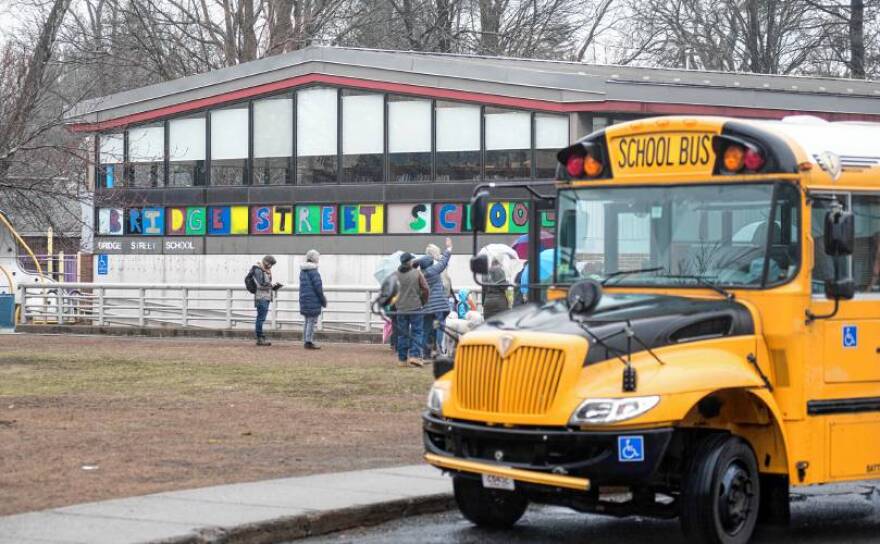Though regional school districts could receive more money to pay for student transportation than they've gotten in years through Gov. Maura Healey's fiscal year 2024 budget proposal, the Massachusetts Association of School Committees is still hoping for long-promised full funding from the state.
The law entitles regional school districts, such as those in rural areas, to a 100 percent reimbursement for school transportation expenses, but state funding has consistently fallen short of this benchmark -- leaving municipalities to pick up the unfunded expenses.
MASC President Andrea Wadsworth said the state originally promised to reimburse the costs as an incentive to regionalize districts that take up large areas of land but have fewer students, where bus rides are longer and more expensive.
It has been funded around 65 to 75% for the past few years, so Healey's commitment to cover 90% of the cost to get students to school was well-received by municipal leaders at the Local Government Advisory Committee, though they still hope for more.
"Historically, that's been a bit of a seesaw, you know from 80 percent to 30, then 70, then 40— it's very hard for our communities to really fund that gap every year. It really hits our bottom line," said Andrea Llamas, town administrator for Northfield. "We would just ask, and we hope, that your strong commitment in this area will continue throughout your administration so that you don't see that seesaw effect so much anymore."
Bringing state reimbursement up to 90 percent involves increasing state contributions to student transportation from $82 million this fiscal year to $97 million in Healey's proposed budget.
Wadsworth said she was excited about the 90% funding for regional schools, though she pointed out that the state should legally be paying 100% of the costs, especially since regionalizing has effects such as making bus rides longer for students, and the promised state reimbursement was intended to incentivize regionalization.
"In Central Berkshire, which is a regional school district, some of those students spend close to an hour on a bus ride. So, you've put a district together, you've said we're gonna give you 100 percent funding, and you haven't for over 15 years, I would guess. And now you're giving them 90, which is great, but it's not what they promised and the kids are riding the bus for an hour," she said.
Wadsworth also advocated for help covering transportation costs for non-regional districts in rural areas, such as her hometown of Lee. Lee Public Schools has about 600 students and the bus contract is over half a million dollars, she said.
"In Lee we are not regionalized, so we get no benefit to funding for transportation and we have a monopoly — like most bus transportation vendors— they set the rates and we're stuck with the price they give us. It's very hard for our taxpayers," she said.
Rural school leaders testified before members of the House Ways and Means Committee last month, flagging this issue as a top priority. The committee's version of the annual state budget is set to be released on Wednesday.




